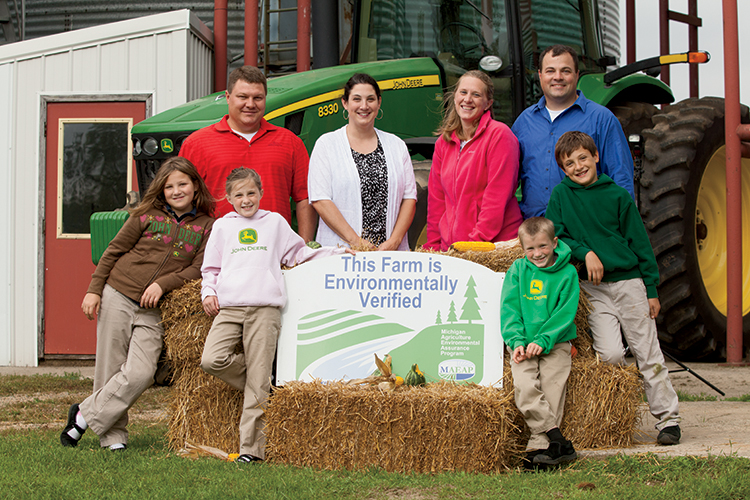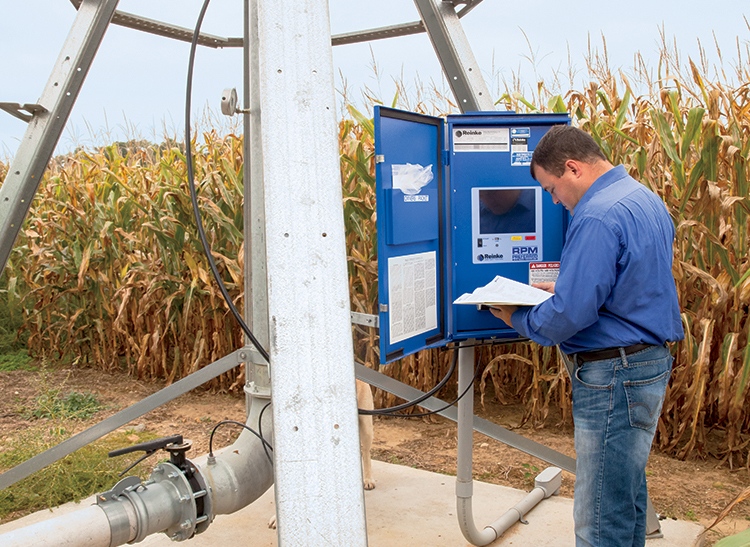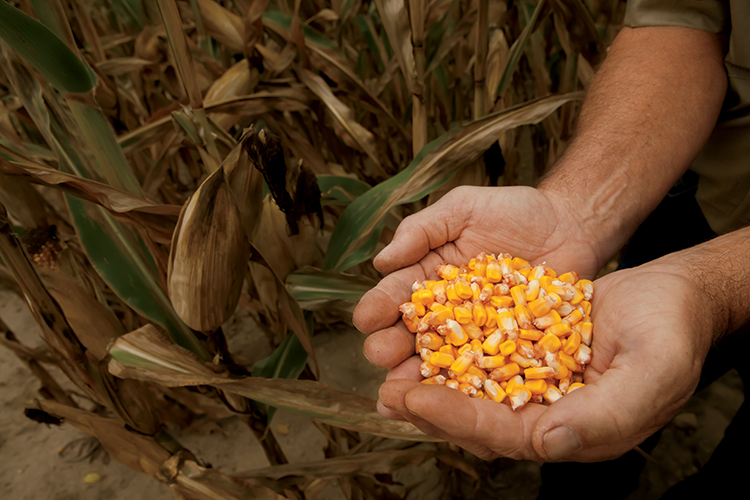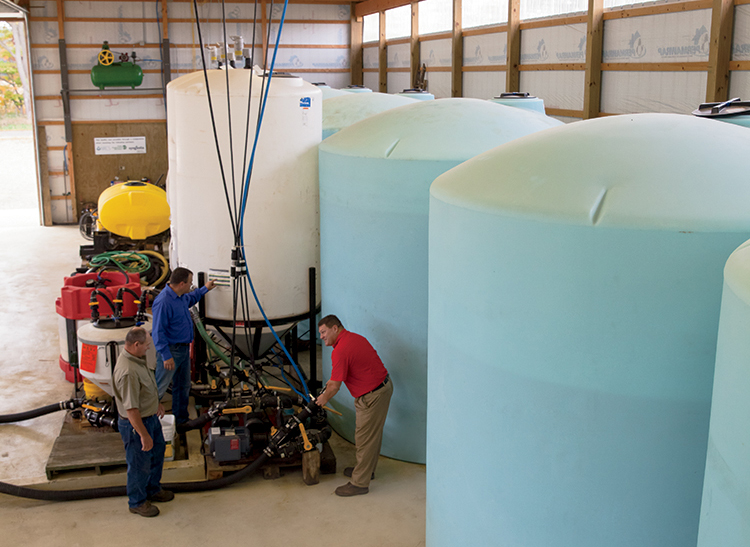Home > Michigan > Michigan Environment > Caring for the Land: Michigan Agriculture Environmental Assurance Program
Caring for the Land: Michigan Agriculture Environmental Assurance Program
In partnership with: Michigan Department of Agriculture & Rural Development

Conservation and sustainability are key concepts in today’s agricultural community, and Michigan farmers are putting those concepts into action by earning verification from the Michigan Agriculture Environmental Assurance Program (MAEAP).
Established in 1999, MAEAP is a partnership effort among farmers, commodity groups, Michigan State University, state and federal agencies, and conservation and environmental groups focused on the protection of natural resources and positive community and neighbor relations.
“This program actually started at the request of farmers,” says Jan Wilford, MAEAP program manager. “Michigan has such a strong history of farmers being voluntarily involved in good stewardship practices, so it makes sense that the farmers led this initiative.”
That sustained interest and commitment from farmers also makes the Michigan program a model for similar programs around the country.

MAEAP is a comprehensive, voluntary, proactive program designed to reduce farmers’ environmental and legal risks through education, farm-specific risk assessment and practice implementation.
These actions are followed by an on-farm verification that ensures the farmer has implemented environmentally sound practices. Farms can earn verification in three systems – Farmstead, Cropping and Livestock.
“One of the key elements is the strong partnership effort within the agricultural community,” Wilford says. “Representatives from all of the major commodities are actively involved. That sets Michigan apart. Farmers here have a high level of ownership in the program.”
“On our farm, we recognize that if we’re going to be successful, we have to be good stewards of our environment,” says Jay Williams of Waldron. “The farm is our factory and the land, water and air are the resources we use to produce our crops. If those resources aren’t taken care of, we aren’t going to be successful.”

Williams grows corn, soybeans and wheat on 1,290 acres, and his farm has been MAEAP verified in the Cropping and Farmstead Systems. Cropping focuses on irrigation and water use, soil conservation, and nutrient and pest management, while Farmstead focuses on safe handling of fuels and proper storage of pesticides and fertilizers to protect surface and groundwater.
“It’s not a simple program to undertake,” Williams says. “We were already doing some of the things that qualified us for verification in the program, but there’s always room for improvement. We opened our farm up for inspection by the Department of Agriculture and Rural Development. It’s a big step for farmers, especially considering how independent we are as an industry.”
Michigan’s 55,000 farms are independent yes, but the state’s farmers have demonstrated a commitment to good stewardship, Wilford says, with 2,000 MAEAP verifications in at least one system, and another 10,000 farms have begun the process of verification. “Our program sets a high environmental bar,” she says. “Verification demonstrates that the good stewardship farmers talk about is really happening. Michigan farmers have stepped up.”
Wilford says the conversation about conservation has changed over the years, and Michigan farmers have been instrumental in that change. “In the early stages, we spent a lot of time talking about why environmental issues are important,” she says. “That’s not part of the conversation anymore. Farmers understand why. They now ask how they can better protect the land and water.”

Welden Farms in Jonesville is among the farms committed to answering that question with action. Operated by brothers Scott and Stewart and their wives, Mary and Jennifer, Welden is a fourth-generation farmer and grows corn, soybeans and occasionally winter wheat on a little more than 2,000 acres in Hillsdale County. The farm became verified in Cropping last year for implementing a high standard of pollution prevention practices.
To gain verification, Welden Farms invited the MAEAP program to review and inspect farm facilities, equipment, farming practices, management plans and written records.
“It’s a good program,” says Scott Welden. “We are committed to protecting the land, and this program allows us to demonstrate that commitment to our community and our customers.”
Although Welden Farms’ history dates back to 1892, with each generation the farm has embraced the future. “These are exciting times in production agriculture,” Welden says. “Our farm strives to keep up with the changing times by adopting the use of tools, technology and improved precision management practices.”



